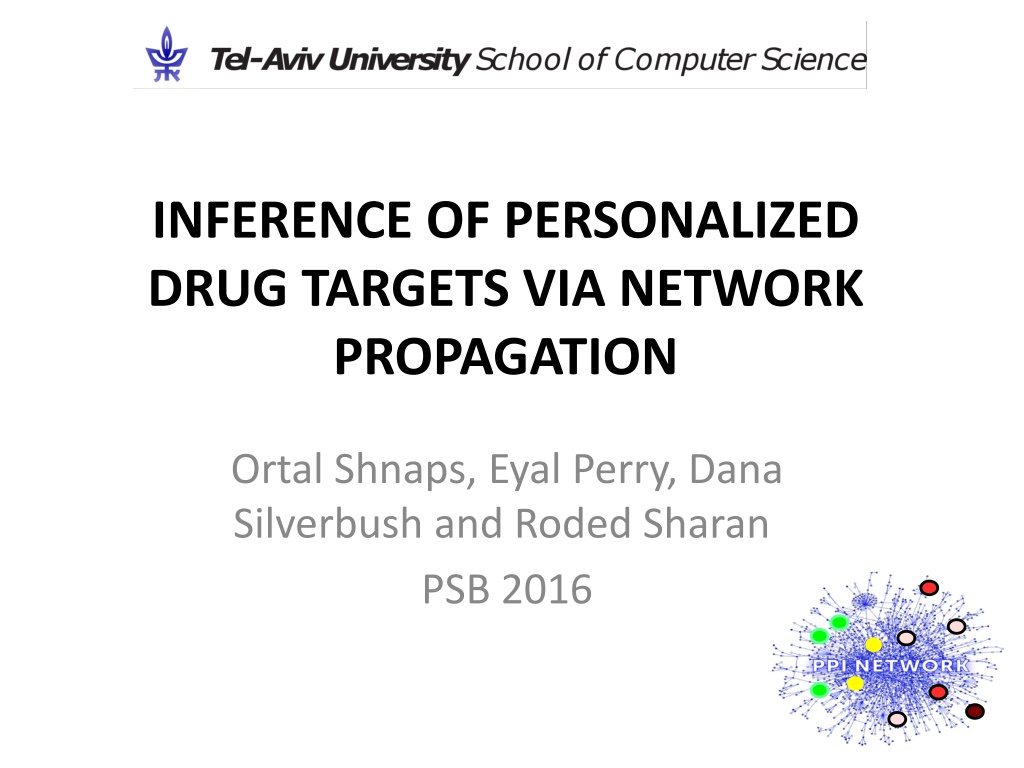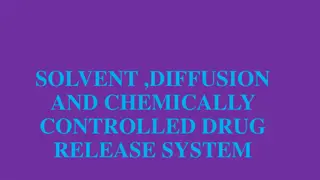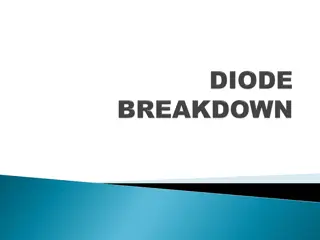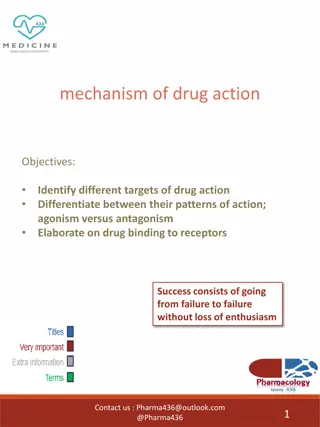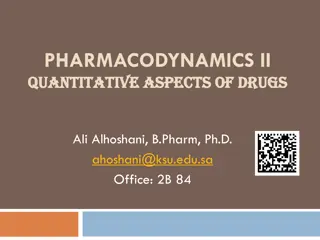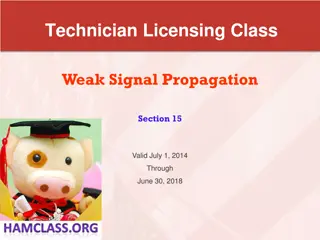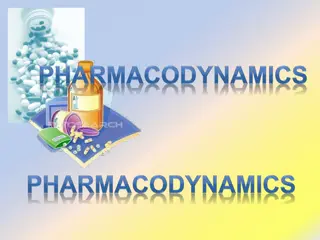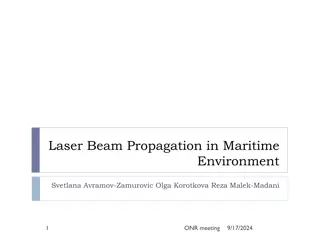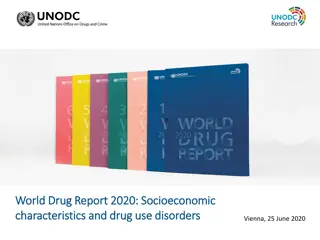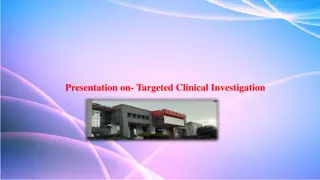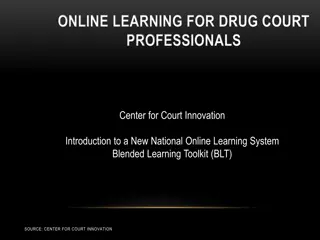Exploring Personalized Drug Targets and Reverse Effects on Disease Through Network Propagation
This research delves into the identification of personalized drug targets using network propagation methods. The study explores how knocking out good drug targets can reverse disease-related effects, focusing on gene expression signatures, small molecules, genes, and disease connectivity. The approach involves in-silico knockouts in a protein-protein interaction network, analyzing mutations and their impact on disease states. Through simulated healthy states, the study illustrates the potential effects of targeting specific genes for therapeutic interventions.
Download Presentation

Please find below an Image/Link to download the presentation.
The content on the website is provided AS IS for your information and personal use only. It may not be sold, licensed, or shared on other websites without obtaining consent from the author. Download presentation by click this link. If you encounter any issues during the download, it is possible that the publisher has removed the file from their server.
E N D
Presentation Transcript
INFERENCE OF PERSONALIZED DRUG TARGETS VIA NETWORK PROPAGATION Ortal Shnaps, Eyal Perry, Dana Silverbush and Roded Sharan PSB 2016
Promising Drug Targets Reverse Expression Signature Gene Expression query Connectivity Score Lamb et. al. The Connectivity Map: using gene-expression signatures to connect small molecules, genes, and disease, Science, 2006.
Looking For Drug Targets Using In- Silico Knockouts in a PPI Network Disease State Disease State + Drug Mutation signal from mutations inhibition
Knockout of Good Drug Target Will Reverse the Disease-Related Effects Differentially expressed genes propagation g1 g2 g3 g4 g5 g6 g7 g8 g9 g10 Patient s mutation data
Knockout of Good Drug Target Will Reverse the Disease-Related Effects Differentially expressed genes propagation g1 g2 g3 g4 g5 g6 g7 g8 g9 g10 Patient s mutation data propagation knockout propagation g1 g2 g3 g4 g5 g6 g7 g8 g9g10
Knockout of Good Drug Target Will Reverse the Disease-Related Effects Differentially expressed genes propagation g1 g2 g3 g4 g5 g6 g7 g8 g9 g10 Patient s mutation data g1 g2 g3 g4 g5 g6 g7 g8 g9g10 knockouts propagation g1 g2 g3 g4 g5 g6 g7 g8 g9g10
Knockout of Good Drug Target Will Reverse the Disease-Related Effects Differentially expressed genes propagation g1 g2 g3 g4 g5 g6 g7 g8 g9 g10 Patient s mutation data g1 g2 g3 g4 g5 g6 g7 g8 g9g10 knockouts propagation g1 g2 g3 g4 g5 g6 g7 g8 g9g10 Simulated healthy state
Knockout of Good Drug Target Will Reverse the Disease-Related Effects Differentially expressed genes propagation g1 g2 g3 g4 g5 g6 g7 g8 g9 g10 Patient s mutation data g1 g2 g3 g4 g5 g6 g7 g8 g9g10 knockouts propagation g1 g2 g3 g4 g5 g6 g7 g8 g9g10 Simulated healthy state
Score Drug Target for Single Differentially Expressed Gene For a single gene with a single knockout: Post KO Pre KO
Back2Health(drug) = count reversing events Back2Health score = Post KO Differentially expressed genes Pre KO |Differentially expressed genes|
Evaluate With Known Drug Targets Hippie PPI network 186,217 interactions among 15,029 proteins. 174 AML samples on average 7.6 mutated and 340 differentially expressed genes per patient. Patient specific ranked drug targets Aggregate results for validation
Top scoring targets (1%) were highly enriched with known drug targets 10 10 p 5 10 p Cosmic obtained 72 causal genes DrugBank version 4.3 obtaining 22 drug targets.
Patient-Specific Approach vs. Consensus Patient p = 0.23 p = 0.22 Na ve approach focusing on common mutations p = 0.18
Predicting Sensitivity for FLT3-ITD Patients Replicates In-Vitro Results In-Vitro Conclusions: Poorly responsive to PI3K inhibitor Decreased abnormal proliferation, yet showing unchanged abnormal levels of apoptosis for MEK inhibitor Responded with high sensitivity to PIMs inhibitor, led to development of AZD1208 Back2Health Score Drug Target Candidate
Thank you Ortal Shnaps & Eyal Perry PSB 2016
